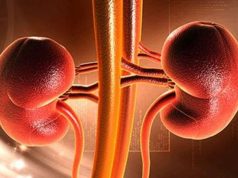Association with cardiovascular disease and mortality is independent of mean HbA1c level
WEDNESDAY, Dec. 28, 2016 (HealthDay News) — For patients with type 2 diabetes, postprandial hyperglycemia is associated with incidence of cardiovascular disease (CVD) and all-cause mortality, independently of the mean glycated hemoglobin (HbA1c) level, according to a study published online Dec. 15 in the Journal of Diabetes Investigation.
Toshiko Takao, from the Institute for Adult Diseases at the Asahi Life Foundation in Tokyo, and colleagues examined the impact of postprandial hyperglycemia at clinic visits on the incidence of CVD and all-cause mortality independently of mean HbA1c in a retrospective observational cohort study. Data were included for 646 patients with type 2 diabetes. Patients underwent initial consultations during 1995 and 1996, had their two-hour post-breakfast blood glucose (2h-PBBG) measured, and were followed for at least one year. Overall, 618 of the patients had no history of CVD at the initial visit and had measured 2h-PBBG until the first CVD onset or censorings. Patients were followed through June 2012.
The researchers found that CVD and death occurred in 78 and 56 patients, respectively. After adjustment for the mean HbA1c, the number of 2h-PBBG measurements, age, sex, and classical risk factors, the mean 2h-PBBG was a significant predictor for CVD incidence and all-cause mortality.
“Postprandial hyperglycemia represented by the mean level of 2h-PBBG at clinic visits is associated with the CVD incidence and all-cause mortality independently of the mean HbA1c level in type 2 diabetes patients,” the authors write.
Full Text (subscription or payment may be required)
Copyright © 2016 HealthDay. All rights reserved.








